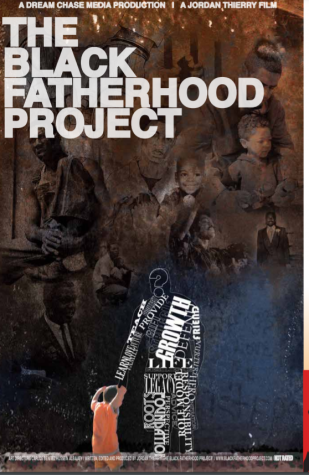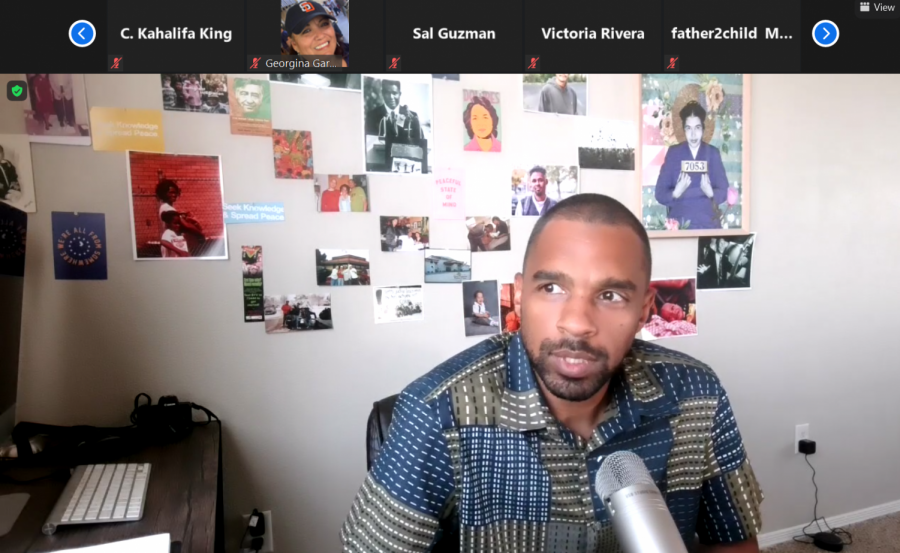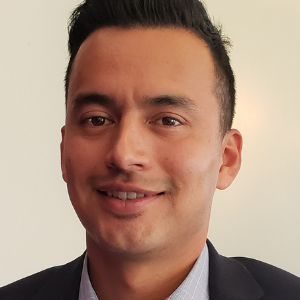City College HUBU discusses systemic racism and the Black family
Director and producer Jordan Thierry provides perspectives for Black fathers about the challenges caused by systematic racism
The Black Fatherhood Project Documentary produced by Jordan Thierry was presented at City. Screenshot from Zoom
April 27, 2021
Dean of Student Development and Matriculation at San Diego City College, Nesha Savage, kicked off the campus’ Hermanos Unidos Brothers United screening of The Black Fatherhood Project. The documentary screening was followed by a Q&A with the director and producer Jordan Thierry.
“The film highlights how Black men have been displaced from home in a very targeted way by slavery, mass incarceration, and deaths caused by police,” said Savage.

The narrative of Black fathers has been that they do not value fatherhood. Contrary to this stereotype, African people or people of African descent have had cultural and historical family-centric focus as part of their core values.
While in his Master’s Program at Howard University, a then 23-year-old Thierry was inspired to make a documentary highlighting positive perspectives from Black fathers that counter the “dead-beat father” narrative.
The film took Thierry on a 7-year journey to explore the social issue of broken families in the Black Community.
Thierry said he started to move back and this film became a historical piece to look at how systemic racism and institutional framework has caused numerous challenges for Black communities to prosper such as unemployment, drug epidemics, and denial of homeownership.
A discussion about social groups or the belief in socialization was explained with the expression “it takes a village.” The historical view in the film showed Black populations had a strong attachment to the community, considered an “extended family” where everyone is family regardless of blood relation.
A discussion about village community ideology, which centers on trust and helping others when needed, demonstrated the powerful sense of community that is created when these ideologies are at the forefront of community relationships.
Thierry stated that in our current society, people are highly motivated to be successful economically and feel they do not have time for community participation.
The film discusses how the roots of Black family dynamics of the current day lay in the past institution of slavery and the transformation of that into targeted policing and lack of resources.
The roles imposed by colonialism racism and institutions to enslave had changed the models for Black fathers and weakened their families.
The discussion of the current state can focus on the strong history of family and culture, and provide context to deal with the challenges that now exist in the Black community.











